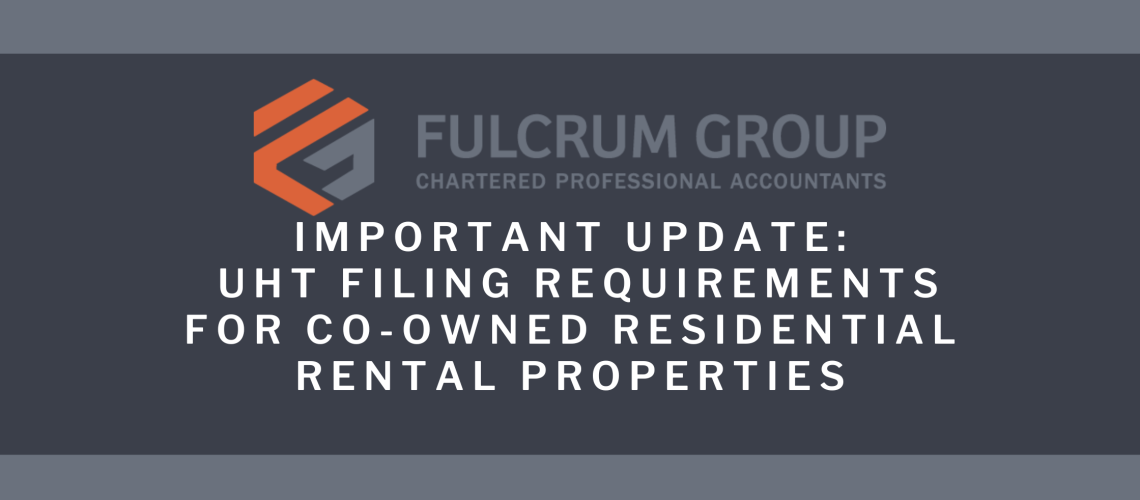The Canada Revenue Agency (CRA) recently released technical interpretation UHTN-15, which discusses co-ownership of residential rental properties and its potential impact on the filing requirements for the Underused Housing Tax (UHT).
In accordance with UHTN-15, the term “partnership” for UHT purposes is not explicitly defined in the Underused Housing Tax Act (UHTA). Instead, the CRA relies on the definition provided by provincial partnership legislation, which is consistent with the legal understanding of a valid partnership.
The key criteria for a relationship to be considered a partnership for UHT purposes are:
- Carrying on a Business: The co-owners must be engaged in the activity of renting out the residential property, treating it as a business venture rather than a passive investment. ( A key differentiation can be whether the property is self-managed [business] or a property management company is engaged [passive investment])
- In Common: The co-owners must share ownership and responsibilities related to the property, indicating a joint interest and collaborative effort in its management.
- With a View to Profit: The primary objective of the co-ownership should be the pursuit of profit, aligning with the basic principles of a business partnership.
These three criteria closely mirror the fundamental elements required for a valid partnership under provincial partnership legislation. If any of these criteria are not met, the relationship would not qualify as a valid partnership for UHT purposes.
Given the self-assessment nature of Canada’s tax system, it is crucial for co-owners to determine whether their residential rental property arrangement meets these criteria. Should the co-ownership structure align with the conditions outlined in UHTN-15, filing a UHT return as a partnership may be necessary. The deadline to file is Oct 31, 2023, for 2022 returns and will be April 30 for future years. The late filing penalty is $5,000 per form.
To ensure compliance and explore any potential implications for your specific situation, contact our office and/or schedule a meeting at your earliest convenience. This will allow us to discuss the particulars of your residential property holdings and formulate a tailored strategy to address any UHT filing requirements that may arise.



